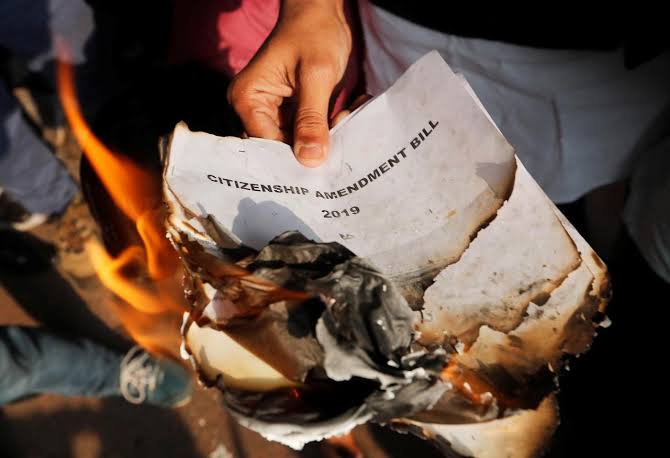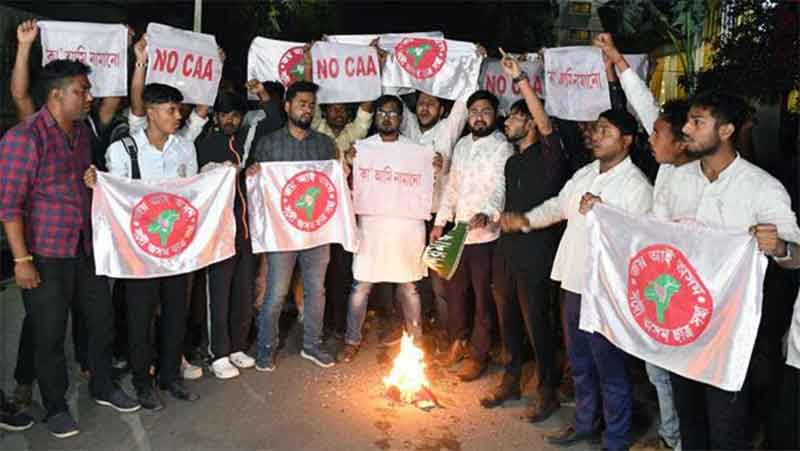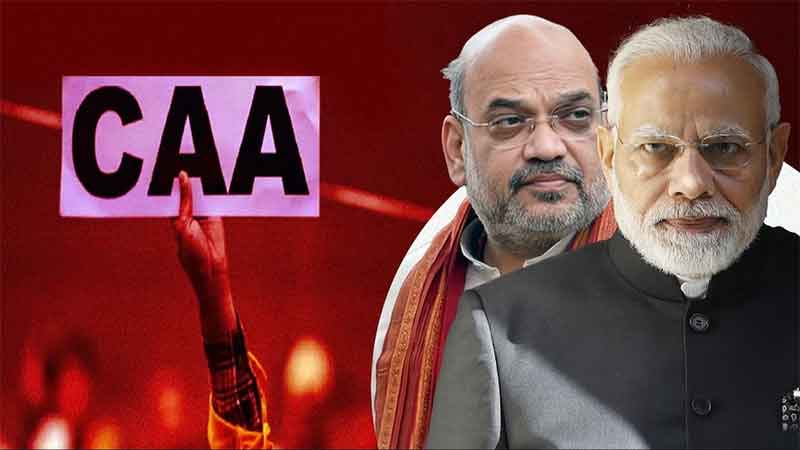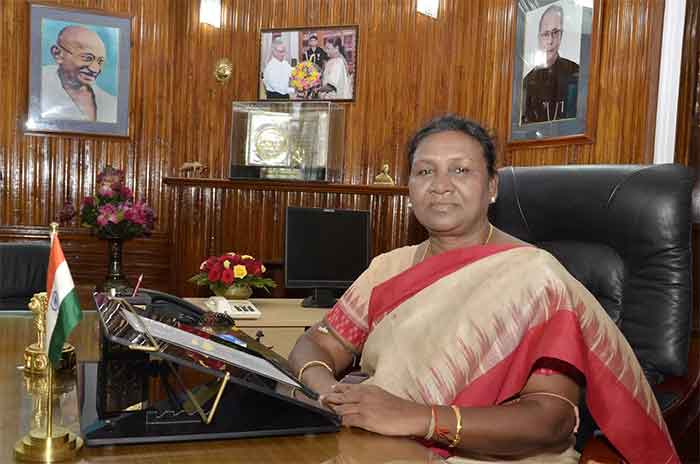
Introduction
“I want to live and work with humans, so I need to express the emotions to understand humans and build trust with people,” said ‘Sophia’[i], the World’s First Robot citizen, in an exchange with moderator Andrew Ross Sorkin nearly two years ago. When countries started thinking of granting citizenship to robots and robot citizen(s) can speak of building trust with people, here in India, the government is in the process of creating millions of stateless[ii]. The situation invites attention to the concepts of citizenship and statelessness. What does it mean to be a citizen? What rights does a citizen hold? Is there a condition of having citizenship of no country? If it happens, then what will be their rights and status? The current situation in India raises some poignant questions on the decision of the government to pass the Citizenship Amendment Bill (CAB) on 13 December 2019. Contextualizing this situation, the article tries to critically evaluate the recent Citizenship Amendment Act (CAA) and the National Register of Citizenship (NRC) in India.
From Citizens to Stateless: Evidence from World History to India
It was on 9 December 2019, the previous day of International Human Rights Day, the lower house (Lok Sabha) of Indian parliament passed the Citizenship (Amendment) Bill (CAB), 2019 with a considerable majority. The upper house (Rajya Sabha) passed the CAB on 11 December 2019, just one day after International Human Rights Day. With this amendment in its citizenship law of 1955, India became one of the few (perhaps the only if excludes Israel) countries to include religion as a criterion for citizenship. The CAB (now the Citizenship Amendment Act- CAA), 2019 states;
“Provided that any person belonging to Hindu, Sikh, Buddhist, Jain, Parsi or Christian community from Afghanistan, Bangladesh or Pakistan, who entered intoIndia on or before the 31st day of December, 2014 and who has been exempted by the Central Government by or under clause (c) of sub-section (2) of section 3 of the Passport (Entry into India) Act, 1920 or from the application of the provisions of the Foreigners Act, 1946 or any rule or order made thereunder, shall not be treated as illegal migrant for the purposes of this Act;”[iii].
The CAA may look like that it is meant or applicable only for persecuted religious minorities from three neighboring countries with Muslim majority; namely Pakistan, Bangladesh and Afghanistan. However, the same Act created panic among a large number of people (especially Muslims) across India after Amit Shah, the Home Minister of India asserted in parliament that a country-wide National Register of Citizens (NRC) to prove citizenship would soon be carried out.
The situation recalls the horrors of incidents in Germany after the Nazis came to power in the early 1930s. They, too, had started to execute their agendas with changes in the law to discriminate against particular sections of society (especially the Jews). It was intensified with the introduction of the infamous Nuremberg Laws[iv] in 1935. The laws led to the displacement, persecution and mass extermination of Jews in Germany. Another example from the world history, related to this aspect, is the Burma Citizenship Act[v] of 1982 which granted citizenship to individuals residing in Burma who could trace their family residence before 1823[vi]. The law had severe implications as it denied ‘full-fledged’ citizenship and rights for many families of various ethnic groups like Rohingyan Muslims. The problems were mainly due to the difficulty to prove the deep roots for a person in Myanmar with essential (listed) documents.
The recent debates and upheavals over citizenship and countrywide protests on the passing of CAB/ CAA in India are strongly linked with the bitter experiences of execution of NRC in Assam[vii] a few months back. The final NRC list prepared for Assam has excluded 19 lakh residents. Most of the Indian and international human rights organizations have expressed concern that this documentation and register is a “targeted mechanism to disenfranchise Assam’s Bengali Muslim community, implicitly establishing a religious requirement for citizenship and potentially rendering large numbers of Muslims stateless.” In the words of Billy Perrigo, reporter, TIME magazine one can view that how difficult it is to prove one’s identity:
It is not that easy. Activists say the Indian state has put an unfairly high burden of proof on residents to prove they have the right to remain — requiring documentation dating back to March 24 1971, the day before the war with East Pakistan (today known as Bangladesh) erupted. For families who do not keep meticulous records, who have faced persecution, or who are unable to navigate India’s complex bureaucracy, that can be not very easy[viii].
Ironically, this brutal political game is happening in India, which has a golden history and tradition of accommodating a large number of refugees from neighbouring countries since its independence. During the period between 1947 and 1950 and the years of Bangladeshi Liberation war one has witnessed the massive influx of Partition refugees and war refugees to India. Later India became paramount to many other refugee communities in and around its South Asian neighborhood. The Afghan Refugees, the Tibetan lamas, the Chakmas of Bangladesh, the Tamils from Sri Lanka and the latest in that episode is the Rohingya Muslims of Myanmar. Thus the post-independent India is the home of refugees who belong to all religions and sects[ix].
Question of Human Rights, Indian Constitution and International Law
The preamble of the Universal Declaration of Human Rights ( UDHR) states that “Recognition of the inherent dignity and of the equal and inalienable rights of all members of the human family is the foundation of freedom, justice and peace in the world”[x]. Article 15 of UDHR says, “Everyone has the right to a nationality and that no one shall be arbitrarily deprived of his nationality nor denied the right to change his nationality”[xi]. In May 1948, it was India, and the United Kingdom proposed an amendment, among other things, to the article concerning nationality, in which the provision “Everyone has the right to a nationality” was replaced by the phrase “No one shall be arbitrary, deprived of his nationality”[xii]
The preamble of the Constitution of India clearly describes;
“WE, THE PEOPLE OF INDIA, having solemnly resolved to constitute India into a SOVEREIGN SOCIALIST SECULAR DEMOCRATIC REPUBLIC and to secure to all its citizens: JUSTICE, social, economic and political; LIBERTY of thought, expression, belief, faith and worship; EQUALITY of status and of opportunity; and to promote among them all FRATERNITY”[xiii].
Part II of the Constitution of India says, at the commencement of this Constitution, every person who has his domicile in the territory of India and—(a) who was born in the territory of India; or (b) either of whose parents was born in the territory of India; or(c) who has been ordinarily resident in the territory of India for not less than five years immediately preceding such commencement, shall be a citizen of India[xiv].
PART III Fundamental Rights, Right to Equality: Article 14 says: “The State shall not deny to any person equality before the law or the equal protection of the laws within the territory of India” Article 15 (1) stresses: “The State shall not discriminate against any citizen on grounds only of religion, race, caste, sex, place of birth or any of them. Clause (2) adds that “No citizen shall, on grounds only of religion, race, caste, sex, place of birth or any of them, be subject to any disability, liability, restriction or condition with regard to-…..”[xv]. Article 21 says “No person shall be deprived of his life or personal liberty except according to the procedure established by law[xvi]”
The proposed NRC, which is planning to be undertaken nationally, violates all the above mentioned fundamental rights of a large section of citizens of India. By introducing a ‘religious test’ for the citizenship legislation of India, by excluding Muslims and other persecuted minorities (religious, ethnic, racial and linguistic) in similar circumstances[xvii] and by offering special consideration to only some religious groups the country gets clearly divided in the communal lines. It is against the very fundamentals of the Indian constitution, specifically its secular and socialist character. The move violates fundamental principles of non-discrimination and equality, besides contravening many international conventions and laws.
CONCLUSION
We are living in the era of a liberal globalized world where there is an erosion of state autonomy and the emergence of new areas of power and decision beyond the control of the state. This is the era of ‘Sophia’, the digital citizenship. It has led to a situation of weakening traditional bonds of identity and dependency between the state and individuals. But the recent Indian experiences and practices may tend to shift the citizenship and globalization as contradictory each other. Anyhow, statelessness is not only a source of human insecurity, a cause of forced displacement and detention but would also pose a threat to national and regional stability.
[i] The first humanoid robot in the world with citizenship, Sophia made global media attention when the kingdom of Saudi Arabia granted her citizenship in October 2017. The robot was developed by Hanson Robotics, a Hong Kong-based engineering and robotics company. See Cuthbert, Olivia (2017): “Saudi Arabia becomes the first country to grant citizenship to a robot”, Arab News, 26 October, available at https://www.arabnews.com/node/1183166/saudi-arabia
[ii] The term “stateless person” means a person who is not considered as a national by any State under the operation of its law. See UNHCR (1954): “Convention Relating to the Status of Stateless Persons”, See Page No. 6, available at https://www.unhcr.org/ibelong/wp-content/uploads/1954-Convention-relating-to-the-Status-of-Stateless-Persons_ENG.pdf
[iii] Ministry of Law and Justice, Government of India (2019), “The Citizenship (Amendment) Act”, No. 47, 12th December.
[iv] The laws (actually a set of two laws) were introduced and executed in Germany during the period of Adolf Hitler in 1930s. The first one was the Reich Citizenship Law, and the second is Law for the Protection of German Blood and Honor
[v] The law introduced by the nationalist Burmese government was intended to shore up Burmese ethnic power. It ultimately created three categories of citizenship in the Buddist majority country with a majority of the Rohingya Muslims became stateless.
[vi] The year of the first British military campaign in the country and with it, a wave of immigration from China and India.
[vii] As the biggest, most populated and troubled state situated in the northeastern part of India which shares porous border with Bangladesh, Assam and indigenous people there have long-held anxieties about being displaced by waves of regional immigration (mainly affected during the partition of British India in 1947 and secondly when the India-Pakistan war in 1971.
[viii] Perrigo, Billy (2019): “4 Million Indian Citizens Could Be Made Stateless Tomorrow. Here is What to Know”, TIME, 30 August
[ix] Pulikkalakath, Lirar and Aswin R Varghese (2016): “International Refugee Protection Regime and the Refugee Policy of India: A Case Study of Rohingyas”, Indian Journal of Politics and International Relations Vol. 9 No. 2 2016
[x] See the Universal Declaration of Human Rights (1948)
[xi] ibid
[xii] United Nations Economic and Social Council (1948): “India and the United Kingdom: Proposed Amendments to the Draft Declaration on Human Rights”, Commission on Human Rights, 3rd Session, E/CN.4/99, 24 May, p.4, available at https://undocs.org/E/CN.4/99
[xiii] Constitution of India (2015)
[xiv] Constitution of India (2015), p. no. 4
[xv] Ibid p. no. 6-7
[xvi] Ibid p. no. 10
[xvii] Baloch, Ahmadiyya and Shias from Pakistan, Uighurs and Tibetans from China Rohingyas from Myanmar; Tamils from Sri Lanka, and Hazara from Afghanistan, Lhotshampas from Bhutan and Urdu speakers from Bangladesh also face various kinds of persecution in their respected countries.
Dr. Lirar Pulikkalakath, Chairman, Centre for Indian Diaspora Studies and Assistant Professor
SIGN UP FOR COUNTERCURRENTS DAILY NEWS LETTER














































